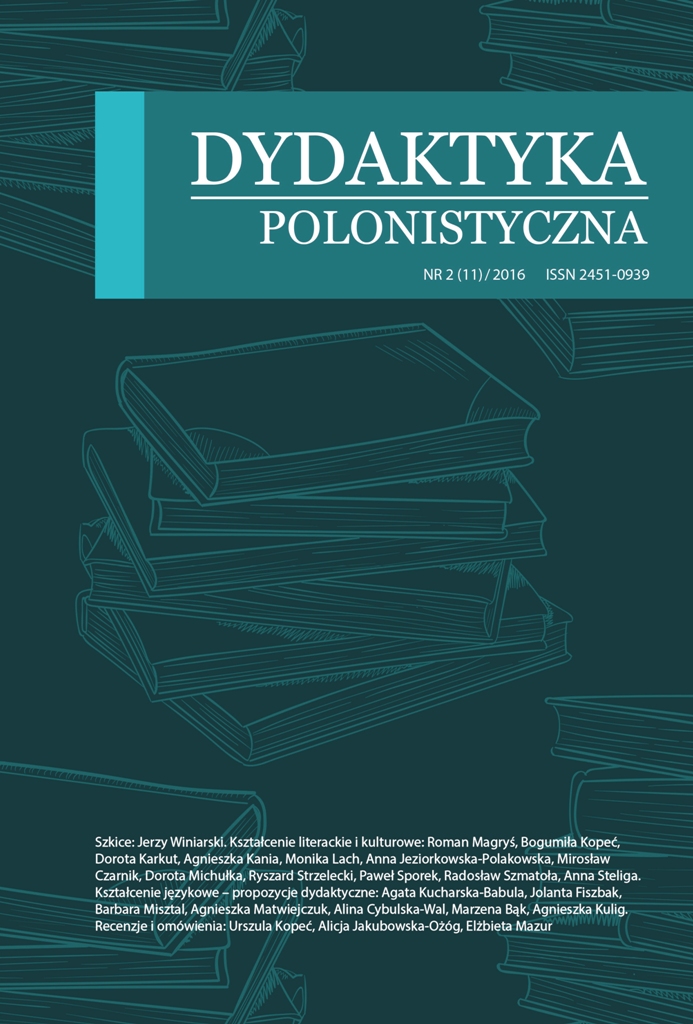Play, theater and performance in the postmodern world
Abstract
Categories such as play, theater and performance, have been included and thoroughly discussedin the article. They were also contextualized in „turns”– cultural, performative, ludological to determine some differences between them. „Small realism” of the performance is the result of man’s recognition in the perspective of his activities and their presentation excluding the content of the reference and the reality of the object’s reference. On the contrary, theater takes on the sense and recognizes „deep”, elusive in action human dimensions unattainable in the performance. The only way that leads to them is a referencearmed with fiction. Reaching the ultimate truth of a man through fiction and delusion is the paradox of the theater, and to some extent also the play. This study has identified some of the concepts of fiction and „its true role” in juxtaposition with the role of necessary truths, authentically present values which gain recognition of the identity of the fictional objects in possible worlds and the real world (with regard to the concept of „inbetweenworlds identity” created by S. Kripke). and by discovering the reality through thereference possibility of the text „footprint” (the concept formed by C. Ginsburg). Nevertheless, in the culture of postmodernism loss of reference not only refers to the performancet hat explicitly renounces it, but also relates to plays and theater. Thus, the consequence of changes in the surrounding art and play in cultural reality are inevitable. The subject of the artistic practice and ludic reference is analog to them, weakened in its reality, the world that has succumbed to „inflation” and „transfiguration of play”. This makes the true relationreplaced by the fictional one (so called ludic relation or virtual relation). As a consequence, play, theater, and performance tend to aim at the same „asymptote” – the lack of reference. For the diagnosis of the process of „transfiguration of the world” differentiators of appropriately modified play were identified by J. Huizinga. Two of them: free unselfishness (keenentertainment, lack of commitments) and virtual reality (fictitiousness, pretending the world, so called „fake world”) can be related to two vectors of change. The first vector – prime sphere of play extends to the whole reality by expansion of the leisure time, pleasure, unproductivity and freedom of activity and anthropology of what is temporary and casual. The second vector launched inside the world seriously leads to virtualization and expansion of the Second Life, simulacra and consequently also to the reduction of the essential dimensions of the human being. Undisputedly, the issue of two vectors will broaden the perspective of analysis of artistic and ludic forms in the postmodern culture.Downloads
Published
2016-12-15
How to Cite
Strzelecki, R. (2016). Play, theater and performance in the postmodern world. Dydaktyka Polonistyczna, 11(2), 108–122. Retrieved from https://journals.ur.edu.pl/dydpol/article/view/5408
Issue
Section
KSZTAŁCENIE LITERACKIE I KULTUROWE


